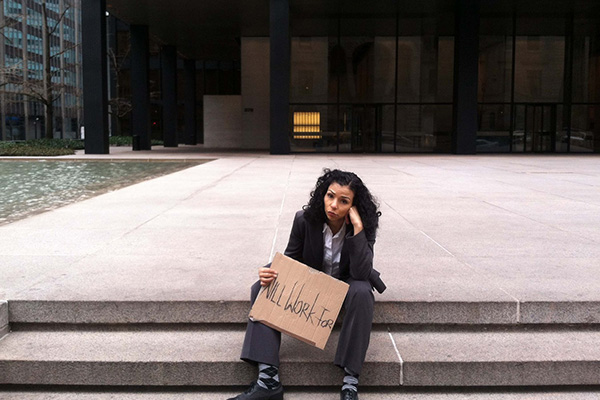
Living in New York is expensive and arduous, and playwright Dacyl Acevedo does not keep this a secret. But she has survived, living to tell her tale of bouts of depression, loss, suicidal thoughts and anger. In her new play “Will Work For,” playing at the IRT Theater through Sept. 28, Acevedo demonstrates what it means to be human, to struggle and to come out all the better for it in the end.
A thrilling, one-woman show employing physical characterization to tell Acevedo’s story, “Work” addresses dozens of important questions about today’s current economy and what it’s like to be unemployed. Acevedo once belonged to that demographic, having been laid off after the financial crisis of 2008.
When sitting in the tiny, 36-seat theater on Christopher Street, it is easy to be moved by the stories Acevedo tells. She is an avid storyteller — strong, determined and easily relatable. She wears her heart on her sleeve and generously invites the audience into her past. At times, it is even uncomfortable hearing Acevedo’s tales, as the audience listens to the traumas and struggles of a person with whom it is so easy to connect.
In this raw performance, Acevedo’s journey through the unemployment system in America is fully fleshed out. She does not keep secrets — all the cards are on the table. But her story is not solely saddening. Acevedo finds the lighter notes in the small tragedies of the unemployed. She skillfully navigates the line between comedy and tragedy, and that, along with how she brings her full immersion into the production, is what makes “Work” so successful.
At times, “Work” brings up political histories, showing clips of speeches from our country’s leaders. These glimpses into the past aid Acevedo’s arguments and further frustrate the audience. The atmosphere in the room changes as everyone collectively views the discrepancies in our government. The unified audience can fully agree with Acevedo’s message that the unemployed have been treated unfairly — that they are not lazy, as our government believes and portrays them to be. Instead, they simply are unable to find jobs despite constantly searching.
“Work” is particularly enthralling because Acevedo’s story is emotionally difficult to navigate. She relives her highs and lows, from missing her father 10 years after his death to finding — then losing — a job within two weeks, to standing in front of a subway and debating whether or not to jump. All of her experiences are human, and one can’t help but wonder how everything in her life could come to this. How could a person who has so much experience and works so hard be unemployed? In “Will Work For,” Acevedo successfully navigates these questions through the stories of her own life.
A version of this article appeared in the Tuesday, Sept. 17 print edition. Sarah Nichols is a contributing writer. Email her at [email protected].























































































































































